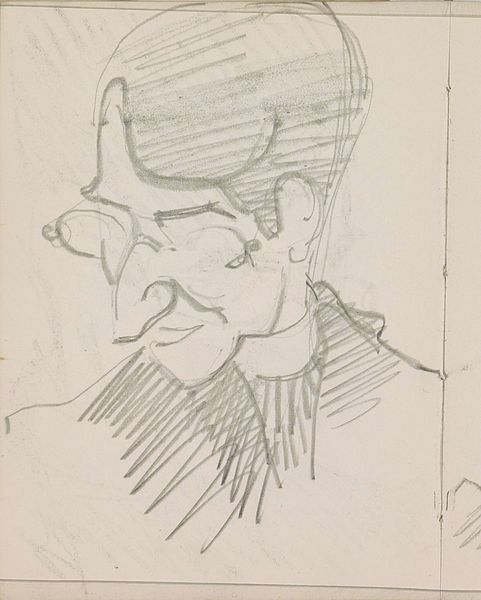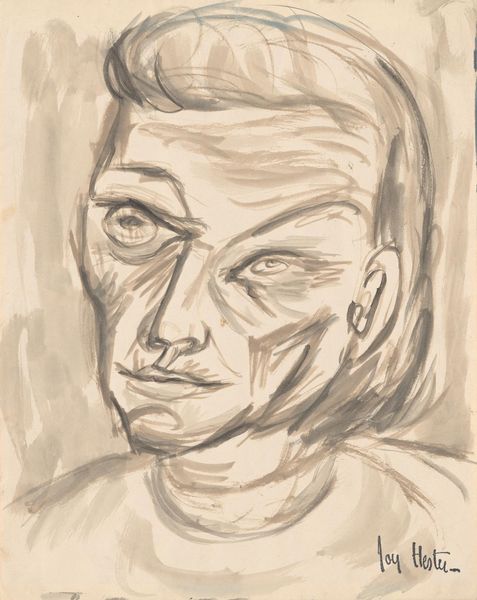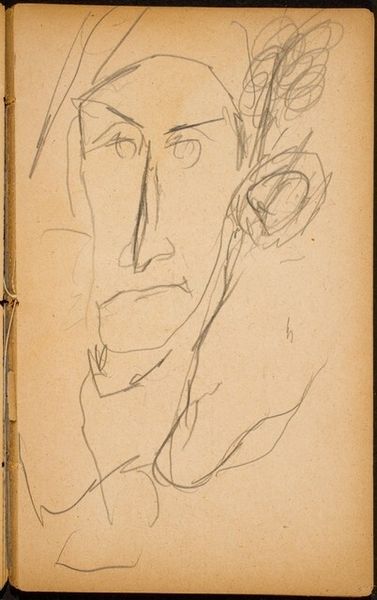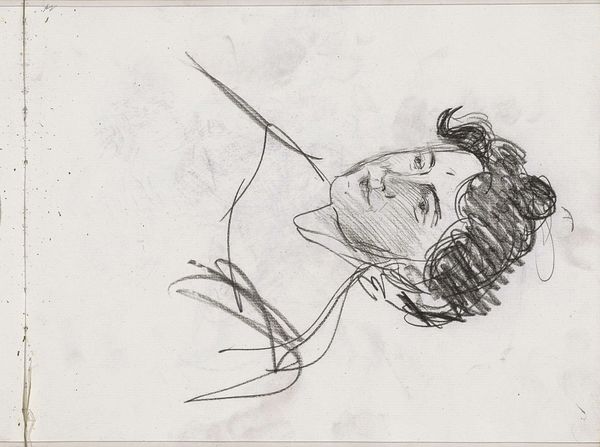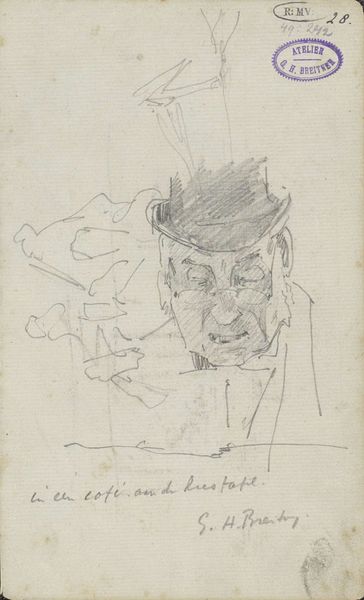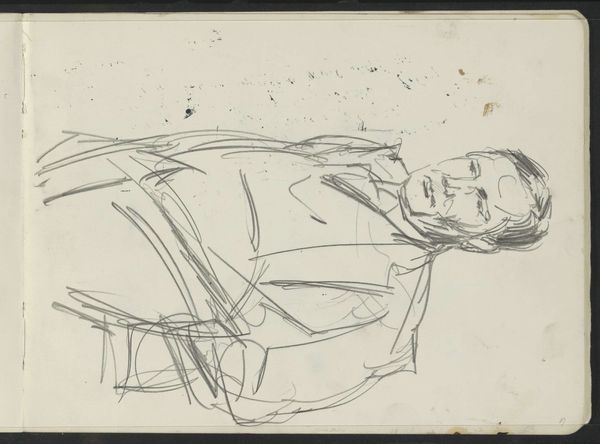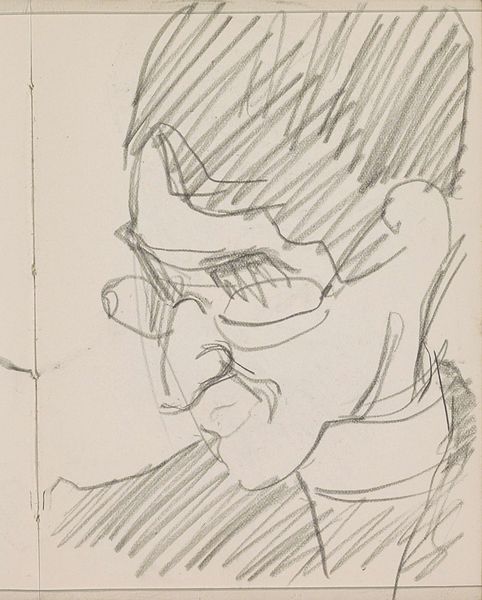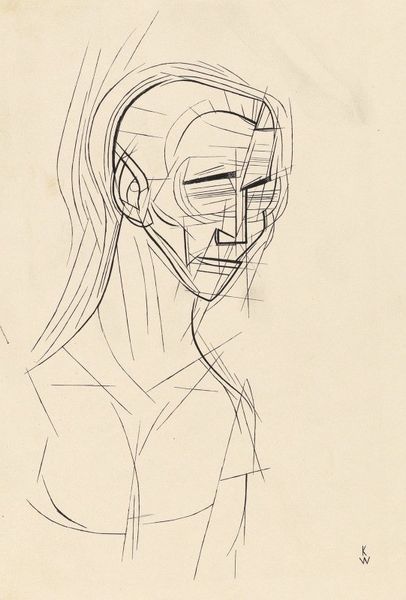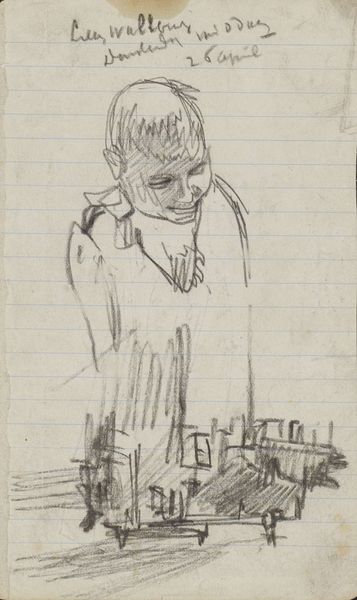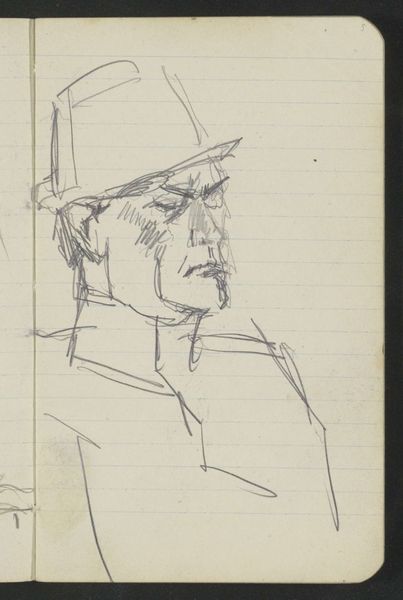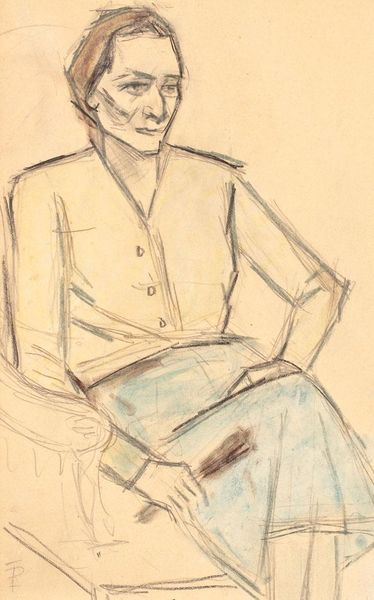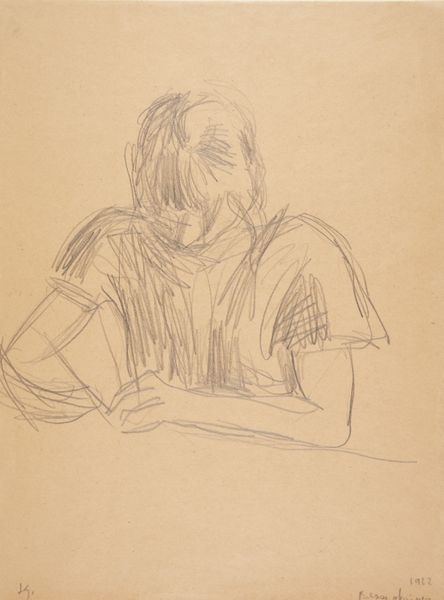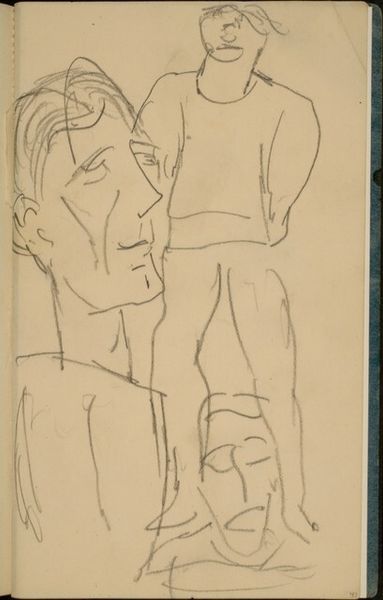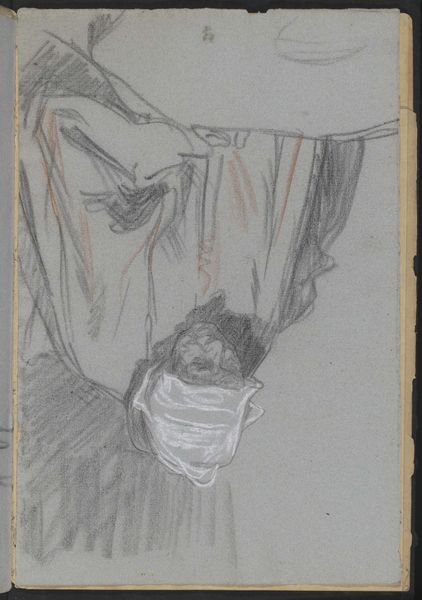
drawing, graphite
#
portrait
#
drawing
#
imaginative character sketch
#
facial expression drawing
#
quirky sketch
#
head
#
face
#
pencil sketch
#
personal sketchbook
#
idea generation sketch
#
sketchwork
#
sketch
#
line
#
graphite
#
sketchbook drawing
#
portrait drawing
#
sketchbook art
#
forehead
#
modernism
#
realism
Dimensions: 42 x 31 cm
Copyright: Creative Commons NonCommercial
Curator: Here we have Alfred Freddy Krupa’s “The portrait of the soldier in Sarajevo,” a graphite drawing from 1991. What’s your initial impression? Editor: Melancholy. The starkness of the graphite on paper really accentuates the downcast eyes and somber expression. There's a rawness to it that is very compelling. Curator: Yes, the artist’s commitment to realism, paired with a clear and precise linework emphasizes the internal psychological state. It allows the viewer to infer much more about this subject. Editor: Considering the artwork’s title and date, 1991, placing it at the cusp of the Bosnian War, the subject’s posture and shadowed face arguably become more potent. It transforms from just a portrait of a soldier to an allegory for the war's devastating impact. Curator: Absolutely. Knowing this context changes the reading of the graphic language and line qualities. The head, rendered with confident yet subtly frantic lines, doesn’t aim for academic perfection. Editor: It's a far cry from a glorification of military might, that’s for sure. It feels more like a human document, recording the anxiety and disillusionment felt in that particular time and place. The sketch-like quality further enhances that feeling of immediacy, like a news dispatch from the front lines. Curator: The texture of the graphite gives the work its palpable sense of tension, a sense reinforced through our own understanding of the visual cues as art historical forms that have represented melancholy in the past. Editor: You are right, and this image feels even more loaded knowing Sarajevo’s tragic history. It becomes a marker of personal and collective trauma rendered in graphite. It’s the portrait of an individual, but simultaneously, of a generation facing immense upheaval. Curator: What began as a set of lines is now filled with history. Thank you for your valuable insights. Editor: The pleasure was mine. Thank you for the framework to read it carefully.
Comments
No comments
Be the first to comment and join the conversation on the ultimate creative platform.
